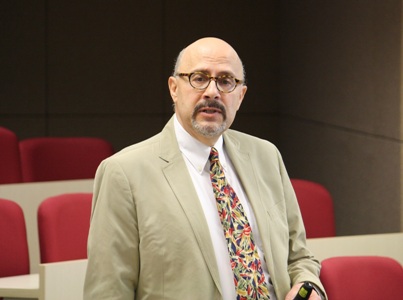Venue
Start
End
Speaker(s)/Moderator(s)
Managing Shipping in Canadian Arctic Waters: Assumptions, Aspirations and Concerns
Introduction

Recently, the governance of shipping in Canadian Arctic waters received fresh impetus from several developments, including new international maritime regulation and a domestic initiative to create a marine transportation system. The continuing decrease of sea ice cover is enhancing greater access to this remote region of Canada by a range of commercial and recreational vessels, including to uncharted areas and locations where the provision of critical services (such as search and rescue) are constrained. Hence, there is a need for an organized and serviced navigation system that will facilitate focusing of resources to enhance the maritime infrastructure, improve safety and environment protection, and generally benefit economic development in the North. However, even with a well-developed regulatory and management system in place, polar navigation will continue to be hazardous, remain limited to the summer season and will likely produce adverse social and environmental impacts. In particular, the interests of Indigenous Peoples, for whom the Arctic is home, are likely to be impacted. For example, an increase in ship emissions could have public health impacts and icebreaking in particular areas may interact negatively with Indigenous uses of ice. Professor Chircop revisited assumptions and aspirations in the governance of Arctic shipping and discussed how the demand for efficiency in the servicing of navigation will need to be balanced by human security and environmental concerns.
Presentation
Download Prof Chircop’s presentation in PDF format.
About the Speaker
Dr Aldo CHIRCOP (JSD, Dalhousie 1988) is Professor of Law and Canada Research Chair (Tier I) in Maritime Law & Policy at Dalhousie University, based at the Marine & Environmental Law Institute (MELAW, Schulich School of Law). He is also Researcher at the Ocean Frontier Institute, faculty at the International Development Studies Programme, and Research Fellow at the Centre for the Study of Security and Sustainable Development. In 1988-1992 he held directorships of the Mediterranean Institute (University of Malta) and International Ocean Institute and was member of Malta’s delegation to the Preparatory Commission established by the UN Convention on the Law of the Sea. On joining Dalhousie in 1992 he was Director of the Marine Affairs Program until 2001. In 2003-2005 he held the Canadian Chair in Marine Environmental Protection at the IMO’s World Maritime University, Sweden. Dr Chircop has published extensively in the law of the sea, maritime law and coastal management fields. His most recent book is Canadian Maritime Law (with Moreira, Kindred & Gold, eds; Toronto: Irwin Law, 2016) and is co-editor of the Ocean Yearbook (Martinus Nijhoff Publishers). Dr Chircop’s research focuses on interstitial issues of the international law of the sea and maritime law, in particular the regulation of polar shipping, use of maritime regulatory tools for marine spatial planning and conservation, and development of Canadian maritime law. Among his several professional affiliations, Dr Chircop is member of the Nova Scotia bar and Chair of the International Working Group on Polar Shipping of the Comité Maritime International.
Event e-Flyer
